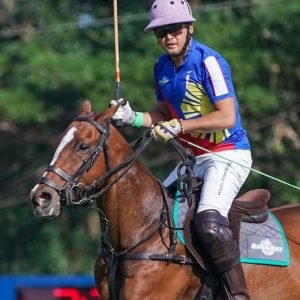
Dear PAO,
I have been in possession of a certain land for some time. I tried to apply for a title over the said land, however, I was informed by the concerned government agency that a patent title was already issued to someone else, covering a large portion of the land I occupy. Allegedly, it has no authority to issue a title over a land that is privately owned. I was surprised to know this and have been trying to obtain help because I want that patent to be voided. My friend Roger, who claims to be an expert on land application processes, said that the concerned government agency is lying. He maintained that the said title could still be rectified and that the agency may amend the title since they were the ones who approved the application of the claimant and issued it. Is Roger correct, and what legal remedies do I have?
Mamar
Dear Mamar,
A land already covered by a certificate of title is considered private land. Government agencies like the Department of Environment and Natural Resources (DENR) or other government agencies exercising the same power have no jurisdiction to issue another title covering the same land.
Further, the original title cannot be rectified or amended upon expiration of one year from and after the date of the entry of such decree of registration. This is in consonance with Section 32 of Presidential Decree (PD) 1529, as amended, which reads:
“The decree of registration shall not be reopened or revised by reason of absence, minority, or other disability of any person adversely affected thereby, nor by any proceeding in any court for reversing judgments, subject, however, to the right of any person, including the government and the branches thereof, deprived of land or of any estate or interest therein by such adjudication or confirmation of title obtained by actual fraud, to file in the proper Court of First Instance a petition for reopening and review of the decree of registration not later than one year from and after the date of the entry of such decree of registration, but in no case shall such petition be entertained by the court where an innocent purchaser for value has acquired the land or an interest therein, whose rights may be prejudiced. Whenever the phrase “innocent purchaser for value” or an equivalent phrase occurs in this Decree, it shall be deemed to include an innocent lessee, mortgagee, or other encumbrancer for value.
“Upon the expiration of said period of one year, the decree of registration and the certificate of title issued shall become incontrovertible. Any person aggrieved by such decree of registration in any case may pursue his remedy by action for damages against the applicant or any other persons responsible for the fraud.”
In Panimdim v. The Director of Lands et al., GR L-19731, July 31, 1964, the Supreme Court, speaking through Associate Justice Angelo Bautista, stated:
“True, it may be, as appellant alleges, that neither the Public Land Act (Com. Act 141) nor the Land Registration Law provides for the period within which the certificate of title to a public land grant may be questioned, but this does not necessarily sustain appellant’s contention that such action may be brought within 10 years (Art. 144, new Civil Code), because this point has already been determined by this Tribunal when we held that:
“‘A certificate of title issued pursuant to a homestead patent partakes of the nature of a certificate issued as a consequence of a judicial proceeding, as long as the land disposed of is really a part of the disposable land of the public domain, and becomes indefeasible and incontrovertible upon the expiration of one year from the date of the issuance thereof (Lucas v. Durian, G.R. No. L-7886, promulgated September 23, 1957).’
“But appellant contends that as he is the official who exercises the power to dispose public lands, it necessarily follows that the right to review a patent pertains to him. In support of his stand, he cites Section 91 of Commonwealth Act 141. This view is correct but only as long as the land remains a part of the public domain and still continues to be under his exclusive and executive control. But once the patent is registered and the corresponding certificate of title is issued, the land ceases to be part of the public domain and becomes private property over which the Director of Lands has neither control nor jurisdiction (Sumail v. Judge, Court of First Instance et al., supra).
“The parties, however, are not without any remedy in law. As we have suggested:
“‘If patent has already been issued, allegedly through fraud or mistake and had been registered, the remedy of the party who had been injured by the fraudulent registration is an action for reconveyance (Roco v. Gemida, G.R. No. L-11651, promulgated December 27, 1958).'”
Applying the quoted decision to your situation, the title that was issued covering the land you are occupying became incontrovertible after one year from the date of entry of its registration. The government agency that issued it has no more jurisdiction to grant another application for title covering the same land as it is already a private land. The remedy of the injured party, assuming the title was issued through fraud or mistake, is to file a civil action for reconveyance in the proper trial court.
We hope that we are able to answer your queries. This advice is based solely on the facts you have narrated and our appreciation of the same. Our opinion may vary when other facts are changed or elaborated.
Thank you for your continued trust and support.
Editor’s note: Dear PAO is a daily column of the Public Attorney’s Office. Questions for Chief Acosta may be sent to [email protected]






